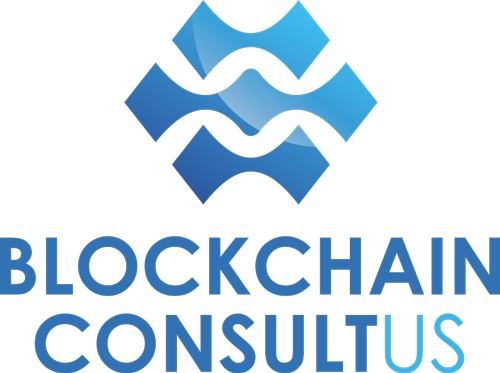We have already published a few posts about using Blockchain in the fashion industry and its use for credentials verification, and we found out that this new technology can help the luxury goods industry to overcome one of its long-standing hurdles: the counterfeit goods market.
Some companies already have some domestic blockchain-based solutions in place, while others offer such solutions to the whole industry. Luxochain is one of them.
Based in Switzerland, not only has Luxochain developed a certification system based on Blockchain, but it also gave its contribution in the fight against COVID-19 with an app for the citizens of Lugano.
We had an interview with the CEO, Mr. Davide Baldi, who explained us the details of his project.
The interview
Hi Mr. Baldi, thank you for this opportunity. Let’s start with an introduction of Luxochain and your mission as a company.
Luxochain was founded in 2017, after I and my friend Roberto Gorini worked on a few projects together. Two years ago, it happened to work for an interesting project with Mr. Natale Consonni, an expert entrepreneur in quality certification. That’s when we gave a shape to our idea in the first place.
Our mission is to give every product a digital fingerprint to identify them: where they come from, where and when they were assembled and when and where their components were extracted, harvested, synthesised or any other process they might have been through.
This is very important in the luxury goods industry, as counterfeit goods are damaging the market. Our product certification system ensures ownership of real products certified on a blockchain and guaranteed by manufacturers.
Which blockchain do you use for your certification verification app?
We use Ethereum, because it is the best fit for the job. Ethereum is safe, reliable, and allows real time tracking. For small productions, however, we appreciate that the transaction cost might be expensive, and that’s why we also work with our partner Virgo. Virgo provides a very similar service, but it works on the Quorum blockchain.
Transactions on Quorum are cheaper than Ethereum, but there are a few downsides, like the fact that it is not prompt and real time.
We do offer an extra layer of security, though: at midnight, all the transactions are hashed and uploaded on Ethereum.
What is the main advantage for brands?
The brand has an effective tool to fight counterfeit goods and trace the provenance of all the components of any product that comes out of their supply chain. In this way, it is also easier to find defective batches, smuggled goods, and so on.
Moreover, the brand knows who the final customer is. I mean, they don’t know their identity, but they can see their customers’ wallet address, even if the product was bought in a multi-brand store.
This means that the brand has a direct communication with their consumers and, with their consent, they might send push notifications and more interesting content and items, driving up-selling and cross-selling campaigns.
And what about the final customer?
The final customer can rest assured they are buying a genuine product and they are not wasting their money. This is very important for those people who want to consciously buy sustainable products and make sure any part of their new purchases is ethically sourced.
How much does this implementation impact on a luxury brand finances?
The cost depends on the number of units produced. On average, the cost is less than € 1.00 per unit, all-inclusive, of course.
Like I said, mass productions will come at a cheaper price. Smaller productions, like high-standard artisan brands, have different needs, so our Virgo solution might suit them better than our standard plan.
Are there any other business niches that might benefit from a system like this?
Of course! There are a lot of possible applications, such as cashback programs or any product that has a supply chain. For example, we are planning to develop an anti-fake news system based on the same principle as Luxochain.
Another interesting project we recently worked on is the app Book Lugano.
Yes, let’s talk about it. How does Book Lugano work?
In the middle of the COVID-19 pandemic, with Summer approaching and the end of the lockdown in Switzerland, the Lugano Council wanted to track and trace people’s accesses to any venue, especially local beaches, for public health protection purposes.
In order to encourage the use of the app, we combined the booking engine with a token attribution system based on a private blockchain. Every time you book a service, the app gives you some free tokens that can be used to pay for other services or goods at any store adhering to the program.
Alternatively, users can buy more tokens using their wallet and use them the same way as the bonus tokens they collected.
How did you handle the GDPR compliance aspect?
I strongly recommend letting a specialised legal consultant handle it, which is what we have done.
Our privacy policy is very clear, and the data owner is Lugano Council. They collect users’ data with the only purpose of preventing the spread of the COVID-19 coronavirus. Our private blockchain only hosts the cashback system. The right to be forgotten is guaranteed by the fact that any personal data of the users are linked to the wallet account only until they use the app. When they stop using it, the only thing that is visible on the distributed ledger is the alphanumeric string that identifies the wallet address.
After 24 months of inactivity, the account associated with the wallet address is no longer available and their bonus tokens get burned. We do keep purchased tokens in the wallet, but as I said, no one but its owner knows to whom it belongs.
Now, a more philosophical question: can you imagine Blockchain being used in our daily lives?
Yes, I do. Not on the short-term, but I do think Blockchain will be widely used. You see, there are a lot of things we do every day through the internet, without even realising those actions are done thanks to a global network connecting us all. I think it will be the same for Blockchain: people will do things with Blockchain, without knowing Blockchain is involved in the process.
Fidelity programs, booking systems, authenticity certificates checks, shipping and more can all be revolutionised by Blockchain.
How long do you think it will take?
For the things I just mentioned? My guess is within five years from now. For more complex applications, such as banking, there is a long way ahead. I’d say at least twenty years from now. At the moment, Blockchain is still a technology only few experts understand thoroughly, and it will stay like this until it becomes simpler and more user-friendly.
Thank you for your time, Mr. Baldi. It was an interesting chat!
Nice to talk with you!





Interview with Davide Baldi, CEO at Luxochain
7 October 2020
We have already published a few posts about using Blockchain in the fashion industry and its use for credentials verification, and we found out that this new technology can help the luxury goods industry to overcome one of its long-standing hurdles: the counterfeit goods market.
Some companies already have some domestic blockchain-based solutions in place, while others offer such solutions to the whole industry. Luxochain is one of them.
Based in Switzerland, not only has Luxochain developed a certification system based on Blockchain, but it also gave its contribution in the fight against COVID-19 with an app for the citizens of Lugano.
We had an interview with the CEO, Mr. Davide Baldi, who explained us the details of his project.
The interview
Hi Mr. Baldi, thank you for this opportunity. Let’s start with an introduction of Luxochain and your mission as a company.
Which blockchain do you use for your certification verification app?
What is the main advantage for brands?
And what about the final customer?
How much does this implementation impact on a luxury brand finances?
Are there any other business niches that might benefit from a system like this?
Yes, let’s talk about it. How does Book Lugano work?
How did you handle the GDPR compliance aspect?
Now, a more philosophical question: can you imagine Blockchain being used in our daily lives?
How long do you think it will take?
Thank you for your time, Mr. Baldi. It was an interesting chat!